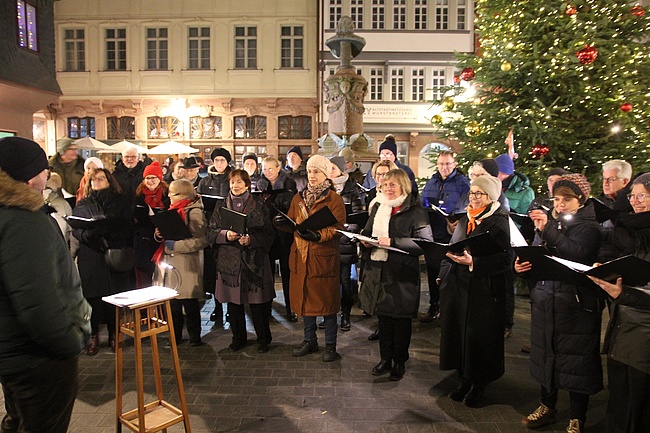The Kleinmarkthalle is one of the most popular places in Frankfurt. This is mainly due to the 60 or so traders with their diverse range of goods. Built in 1953/1954 and listed as a historical monument in 2000, the building is now getting on in years and, despite regular maintenance and upkeep measures, needs to be thoroughly renovated. This applies to the entire building technology - heating, water, waste water, ventilation and cooling systems as well as the electrical installation. In addition, fire protection, safety technology, hygiene and thermal insulation must be adapted to today's requirements. Those responsible at the Managementgesellschaft für Hafen und Markt (HFM) spent a long time planning and weighing up how best to renovate the Kleinmarkthalle under the complex framework conditions. In view of the lack of suitable alternative space, there is only one option: the refurbishment should take place during ongoing operations.
It is expected to start at the end of 2024 or the beginning of 2025. Prior to this, the city councillors must approve the refurbishment and a building application must be submitted and approved. The planning will then be finalized and the services put out to tender. Even if the construction work, which will take around four years, represents a major challenge for everyone involved, there is one major advantage: no retailer has to do without their customers and no customer has to do without their beloved Kleinmarkthalle. In fact, the renovation work has already begun with the soon-to-be-completed modernization of the toilets. The entire basement will then be gutted. Everything will be renewed and modernized: This includes the cellar compartments as well as the electrical and heating systems and the small refrigeration units. New smoke compartments and a new smoke extraction center will also be created. A new smoke extraction and exhaust air duct and new supply air ducts will improve safety in the event of a fire. The basement ceiling, columns and beams will also be renovated in accordance with the latest fire protection regulations and the light wells on the south side will be closed. All technical building systems and supply lines for heating, plumbing, cooling, ventilation and electricity will be replaced. Insulation measures and a modern heating and ventilation concept will help to reduce future energy requirements.
Head of Economic Affairs Wüst: Keeping a close eye on the costs of the refurbishment
Another advantage: hot summers and cold days in winter will be much more bearable in the Kleinmarkthalle in future. As part of the energy-efficient refurbishment, the north façade of the Kleinmarkthalle will be fitted with thermal insulation glazing, into which natural ventilation will be integrated. The original design of the façade with wired glass will be retained in the interests of monument protection. The hall roof will be thermally refurbished and fitted with a photovoltaic system. In future, the energy generated will be used to power the market hall. To ensure that operations in the Kleinmarkthalle can continue undisturbed despite the roof renovation, parts of the roof will be successively separated from the hall with an enclosure. The tradesmen are working above and the market operations can continue below. To make this possible, some of the market stalls in each construction phase will be moved outside into mobile vending trolleys or tents. The outside area will also be used as a construction road and for crew and storage containers for the traders during the work in the basement. The delivery of goods is of course also possible during the construction work. According to current cost calculations, the port and market operators will have to spend around 31.3 million euros on the renovation of the Kleinmarkthalle.
This sum will not burden the city's budget, emphasizes Stephanie Wüst, Head of Economic Affairs: "The Kleinmarkthalle is a Frankfurt gem. However, in its current form, the building has exceeded its intended useful life. We need to tackle the substance in order to prepare the Kleinmarkthalle for the future. We are not talking about golden taps here, but about basic heating and electrical engineering, safety measures and an energy concept that is required to operate a modern market hall. That's no mean feat." The project will initially be financed by the port and market operations' reserves and subsidies, but will also include a loan once the company's own funds have been used up, says Wüst: "Against this background, we do not expect the municipal budget to be burdened. However, as the responsible department head, I am keeping a close eye on the costs."
The retailers will all be affected by the measure, but to varying degrees. Some of them will temporarily use relocated sales stands so that work can be carried out on their stand space in the hall. The temporarily relocated stalls will probably be set up in the area to the north of the hall and on the western forecourt of the hall. The Schlemmermarkt will therefore probably have to take a break for a certain period of time. All tenants will be affected by the renovation of the cellar. All storage cellars from the basement will be relocated in sections to storage boxes in the north parking lot. HFM will provide boxes and power connections for this purpose and support the tenants with the removal and storage of their goods.
Wüst: Close and trusting coordination with tenants sought
During an event on 22 January with city councillor Wüst, the tenants were given the opportunity to discuss their plans. January with City Councillor Wüst, representatives of HFM and the planning team, the tenants were informed about the current planning status of the project. Wüst emphasized that the tenants of the Kleinmarkthalle will be closely involved in the progress of the planning in order to best meet their needs during the refurbishment: "We will not only communicate with you in a very trusting and close manner. We are planning additional communication and marketing measures to inform customers about the work and motivate them to remain loyal to their Kleinmarkthalle." The hall operator, the city-owned HFM, and the commissioned planners will organize the next steps together in close coordination with the tenants of the Kleinmarkthalle.












